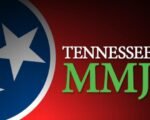As the Irish government finalizes the details of the 2025 budget, several key measures are expected to be included, such as tax cuts, a new vape tax, and the provision of free school books. These proposals aim to address various economic and social issues, providing relief to households and supporting public health initiatives. The budget negotiations are ongoing, with the government working to balance fiscal responsibility with the need to support citizens and stimulate the economy.

Tax Cuts to Ease Financial Burden
One of the most anticipated aspects of the 2025 budget is the introduction of tax cuts aimed at easing the financial burden on households. The government plans to reduce income tax rates, which will increase disposable income for many families. This move is expected to boost consumer spending, thereby stimulating economic growth. Additionally, the budget includes measures to increase tax credits, providing further relief to low and middle-income earners.
The proposed tax cuts are part of a broader strategy to support economic recovery following the challenges posed by the COVID-19 pandemic. By putting more money into the pockets of consumers, the government hopes to drive demand for goods and services, which in turn will support businesses and create jobs. This approach is seen as a way to foster a more resilient and inclusive economy.
However, the tax cuts have also sparked debate among policymakers and economists. Some argue that reducing taxes could lead to a decrease in government revenue, potentially impacting public services and infrastructure projects. The government is working to address these concerns by ensuring that the tax cuts are balanced with other revenue-generating measures and cost-saving initiatives.
New Vape Tax to Promote Public Health
In a bid to address the rising use of e-cigarettes and vaping products, the 2025 budget is expected to introduce a new tax on vape products. This measure aims to discourage the use of these products, particularly among young people, by making them more expensive. The revenue generated from the vape tax will be allocated to public health initiatives, including smoking cessation programs and educational campaigns about the risks of vaping.
The introduction of the vape tax is part of the government’s broader public health strategy to reduce tobacco and nicotine use. Health experts have raised concerns about the increasing popularity of vaping, particularly among teenagers, and the potential long-term health effects. By implementing a tax on vape products, the government hopes to curb this trend and promote healthier lifestyles.
Critics of the vape tax argue that it could drive consumers to seek cheaper, unregulated products on the black market, potentially increasing health risks. The government is aware of these concerns and plans to accompany the tax with strict enforcement measures to prevent illegal sales. Additionally, public awareness campaigns will be launched to educate consumers about the dangers of unregulated vape products.
Free School Books to Support Education
Another significant proposal in the 2025 budget is the provision of free school books for all primary and secondary school students. This initiative aims to reduce the financial burden on families and ensure that all children have access to the necessary educational resources. By providing free school books, the government hopes to promote equal opportunities in education and support academic achievement.
The free school books initiative is part of a broader effort to invest in education and support students’ learning experiences. The government recognizes that access to quality education is crucial for the country’s long-term economic and social development. By removing the cost barrier associated with school books, the initiative aims to create a more inclusive and equitable education system.
Parents and educators have welcomed the proposal, highlighting the positive impact it will have on students’ academic performance and overall well-being. However, some have raised concerns about the implementation and funding of the initiative. The government is working to address these issues by ensuring that the program is adequately funded and efficiently managed.
Maria Garcia is an award-winning author who excels in creating engaging cannabis-centric articles that captivate audiences. Her versatile writing style allows her to cover a wide range of topics within the cannabis space, from advocacy and social justice to product reviews and lifestyle features. Maria’s dedication to promoting education and awareness about cannabis shines through in her thoughtfully curated content that resonates with both seasoned enthusiasts and newcomers alike.








